Understanding Colonisation
SO, HOW DOES IT WORK? At every level, on every subject, the same explanation is offered for Māori disadvantage – colonisation. What’s more, the word itself has acquired such a talismanic quality that its mere utterance is sufficient to close down any further discussion. After all, the only people likely to challenge the colonisation explanation for Māori disadvantage would be the colonisers’ descendants themselves. And they would say that – wouldn’t they?
The colonisers’ descendants might also raise the question as to whether Māori were, in fact, colonised at all. Not a question that anyone would have thought to raise fifty years ago. In the 1970s the argument that Māori had not been colonised would have been laughed out of court. Back then it was generally assumed that, under the terms of the Treaty of Waitangi, Māori had ceded sovereignty to the British Crown. What’s more, the British, very soon after the signing of the Treaty, exercised their sovereignty by annexing New Zealand, declaring it a British colony, and appointing a Governor to rule it. Oh yes, the Māori had been colonised alright – they’d been colonised good and proper.
But, fifty years later, the story has changed. Today we are enjoined to believe that the Māori chiefs gathered at Waitangi on 6 February 1840 did not cede sovereignty to Queen Victoria. Indeed, no less a body than the Waitangi Tribunal has declared that the sovereignty of Māori iwi and hapu remains intact to this day.
It is a curious sort of coloniser who, 180 years after the event, proclaims the untrammelled sovereignty of the indigenous inhabitants of the islands his ancestors claimed as their own. If the indigenous people of New Zealand were not subjugated by military force, relieved of their lands, forests and fisheries, and pushed to the margins of colonial society, then what was going on between the 1850s and the 1970s?
In the most brutal and unvarnished terms, what was going on between the signing of the Treaty and the military suppression of all Māori resistance in the 1860s and 70s, was a deliberate policy of overwhelming the indigenous people by settling tens-of-thousands of immigrants across the country, to the point where their numerical superiority rendered the construction of a second Britain in the South Pacific a feasible proposition. What made “New Zealand” possible was the reduction of the Māori to a militarily and politically powerless minority in their own land.
A particular kind of colonisation, then? Not at all the same as the colonisation visited upon India and Africa. Not even the same as the colonisation visited upon England and Ireland by the Normans. That sort of colonisation features a relatively small number of conquerors and a very much larger number of conquered. Hundreds-of-millions of Indians were ruled over by around 100,000 British soldiers and administrators. The sort of colonisation which colonised peoples can dismantle – which is pretty much what they spent the second half of the twentieth century doing.
But, the Anglo-Saxon colonies of North America and Australasia were a very different proposition. In a relatively short period of time the indigenous peoples of those lands were reduced to insignificant minorities by an unceasing flood of settlers from Europe.
This huge discrepancy in numbers rendered military resistance futile. Always there were more, and more, and more Europeans to replace the settlers and soldiers killed by the indigenous tribes. North America and Australasia thus became “Neo-Europes”, ruled over and overwhelmingly populated by Europeans. Indigenous cultures: their languages, customs, modes of political and economic organisation; even where they escaped becoming the victims of outright genocide, found themselves smothered by the sheer pressure of European numbers.
This is the process which Māori, along with the many other indigenous peoples forcibly assimilated into the Neo-Europes created by Americans, Canadians, Australians and New Zealanders, call “colonisation”. The cultural suffocation that inevitably attended the submerging of indigenous peoples beneath a relentlessly rising tide of nineteenth century immigrants. Settlers who came to stay – and who, more than a century later, are still there.
Within the institutions of the state, and even in a number of private organisations, the answer to colonisation is being presented as “decolonisation” and “indigenisation”. As if the cultural and demographic facts of New Zealand life can be re-configured to the point of somehow undoing the facts of New Zealand history. Regrettably, this strategy carries within it a distressing element of coercion. The threat is there, all the more daunting for being unstated, that those who refuse to decolonise and indigenise will pay a price.
Given the degree of coercion involved in colonisation itself, this hard-line approach is entirely understandable. Unfortunately, it is also likely to provoke the colonisers’ descendants into adopting an angry oppositional stance, which, given the balance of demographic forces, is almost certain to be counterproductive. Attempting to undercut “the tyranny of the majority” by unilaterally redefining the meaning of democracy will only make things worse.
The decolonising concept of “co-governance” cannot succeed if it is understood by Pākehā to mean that Māori will be empowered to exercise a right of veto over the delivery of essential state services mostly paid for by Pākehā taxes. European cultural traditions and political norms are simply too deeply embedded in the Neo-Europe called New Zealand for this crude approach to righting the wrongs of the past and overcoming the inequities of the present to succeed.
Much more likely to secure Pākehā support is the argument that, in the making of New Zealand far too little concern was shown for the impact the colonists’ nation-building was having on the lives and treasures of Māori iwi and hapu. In their eagerness to create a second Britain in the South Pacific, the colonisers simply crowded-out the indigenous people whose rights they were pledged to respect. Presenting co-governance as a way of encouraging Māori to reclaim their lost space has a high chance of success. That the colonial state smothered and suffocated Māori culture and Māori rights is historically undeniable, and morally indefensible.
Ceding Māori the space they need to both rediscover and redefine their tino rangatiratanga is unquestionably the right thing for Pākehā to do. Encouraging Pākehā to join them in that expanded space is unquestionably the best way for Māori to make Aotearoa less European and more indigenous.
Decolonisation is not a programme to be imposed, it is a skill that Māori and Pākehā can only acquire together.

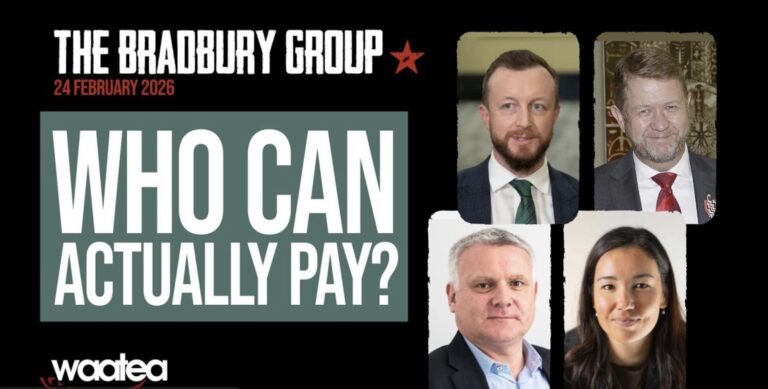
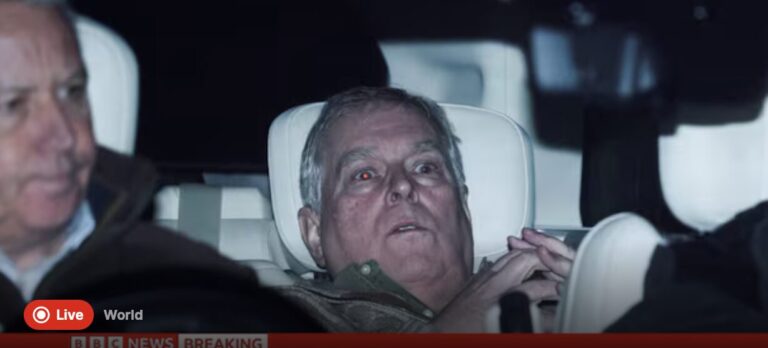
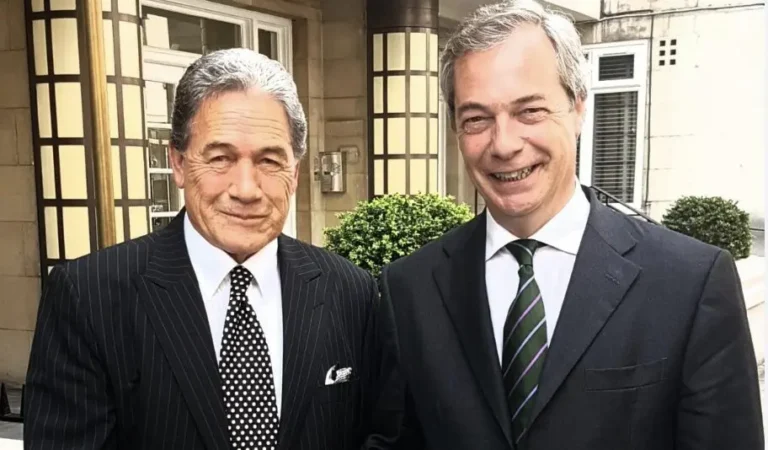
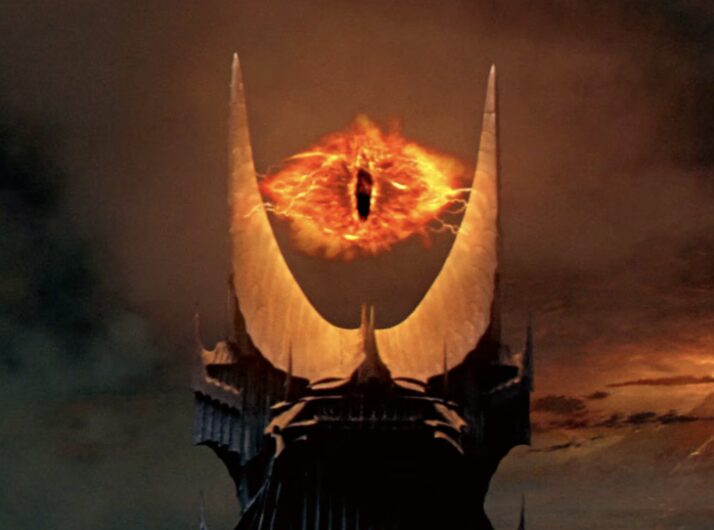
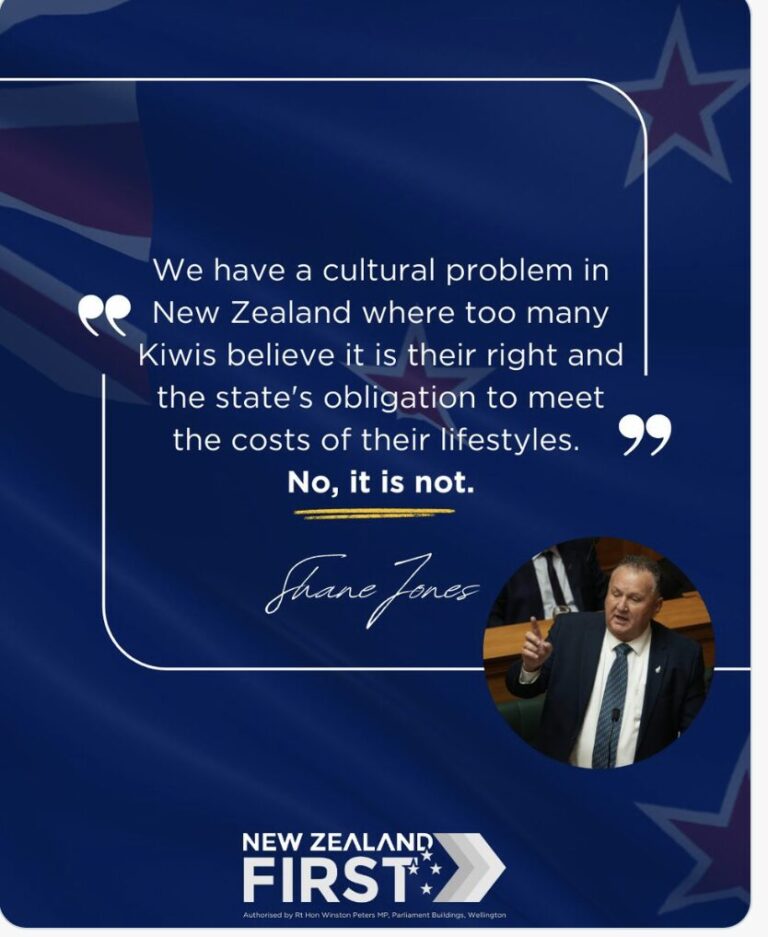
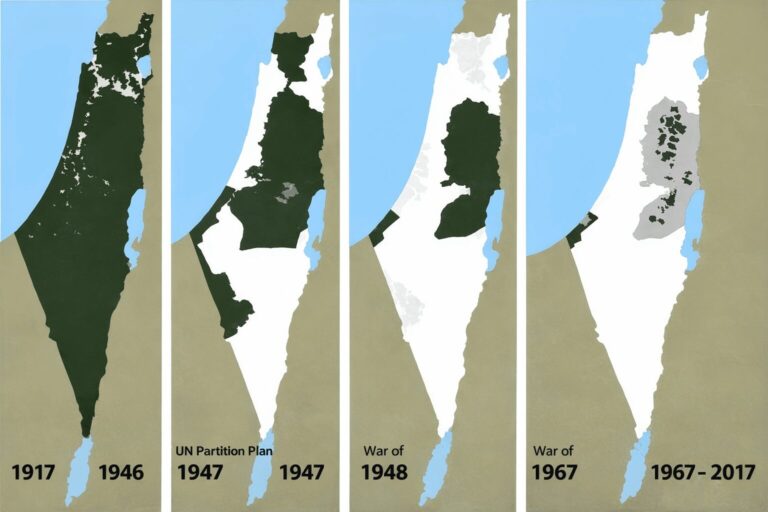
Colonisation by way of mass immigration is continuing and has not ceased.
It’s just not by the British but by anybody and everybody.
The foreign purchase of land, extraction of resources, ownership of infrastructure and businesses means that Maori are further disenfranchised and subjugated.
It will go through the roof under the Nactz.
Well said Chris. I see working together as the only viable way forward. In the nursery arguing children claiming ownership of some important toy might hold onto its parts and end up tearing it apart. Reflection is needed; understanding what is hoped for, written down in simple language without high-flown flourishes; but in accessible report form, numbered with numbered pages in numerous copies that remain the ‘fount of all knowledge’, not small changes being made all the time. It must be printed off and the print copies used as reference; on the internet changes can be made too easily that and people can be bamboozled by others certainty that their version and ideas are the right one/s. Wrangling, uncertainty, disagreement after everything was supposed to be settled and agreed could break the co-operation. (I understand that is said to be behind the Russian assault!)
Then practical methods to advance those ideas be started in a general way; and particular requirements be chosen to immediately work on with regular reports and discussions on unrealised barriers and how to overcome them. A journey of a thousand miles must start with a single step, but also with a map, and the way forward be shown in separate smaller maps but still consecutive, though with sometimes multiple parts, which are reported on and improvements celebrated with a toast and then start again on next. Impetus must be kept up to continue or integrate project into the general system; then another part started, continuous.
I have been involved in a project that was set up with high principles, but when I wanted examples of how those principles would be applied in a real situation, I was silenced – that wasn’t important. ‘Sound and fury signifying nothing’ is something to guard against. Later there was underhand behaviour, and an attempt to replace board members and go off on a different line than that originally agreed.
Lengthy rhetorical flourishes take up time, so idealistic and poetic talk must be time-contained for both Maori and pakeha. Implementation in a friendly, practical, effective and culturally accepting way is vital. Lots of thought, talk, small projects, reporting back. questions, improvements, troubleshooter and cultural-project audits done, maintenance of work achieved, advance.
Ongoing work to keep going for ten years, starting next but better start till January 2024. With objective survey every three years, reported to the nation. People encouraged to be in touch and put ideas forward to help desk. Every communication to be given a reference number with time and date on it, so people don’t feel lost in the sea of activity – can request outcome of their ideas and be available for further information on it.
Yes Maori should embrace Capitalism,get a job at Bunnings ,pay off a mortgage to the banksters and then die.
That’s …’success’.
The problem is, that when Maori Iwi do embrace capitalism, they get labeled “elites”. Where as Pakeha will be lauded for their business acumen, Maori will be criticized for for not running a socialist utopia. When Maori Iwi do run capitalist ventures that are successful whilst running social programs for their people, they are ignored.
a good effort Chris.
but most of the comments here are sickening!
you all should search for any speech by Moana Jackson.
like this one:
https://www.youtube.com/watch?v=MDTJ-aIvxcc&t=8s
and have a read of the Matiki Mai report.
to settle your nerves.
there is no threat except perhaps improved relationships between peoples who want to live in different ways.
there was nothing “benign” about colonisation. it was violent, it was abusive, it was devastating.
“Trauma is what is happening when white supremacist colonisers dispossess you of land, and culture, and lives, while pretending to help you, to civilise you. It is incomprehensible that this would happen to you and leaves you living in a world of unimaginable cruelty”
Thank you Chris for your ongoing attempts to bring another perspective to the problems we face in Ao/NZ. To have your reasoned arguments swamped by a tide of right wing rhetoric must be discouraging. Is there, perhaps, a secret left leaning blog as yet undetected by this current crew of commentors.
Good luck with that!!
Any centre left or centre right blog that accepts posters (an d doesnt moderate heavily) is full of Posters who genuinely want to discuss issues and maybe find a political home, they come from each side of the spectrum. There are also the rent a mouths on both sides that are either paid to cause dissent or see it as part of a strategy for their side to drown out other opinions (yes, after the last couple of years you can see it occurring if you look across the blogs). And on this particular blog, you will see genuine people shift their opinions over time in response to government behaviour.
Some of the people you perceive as right wing arent actually, they are people who have fought against class politics for a long time. They have now shifted right because they abhor identity politics but if you scratch them you will find an old style leftie underneath.
You’ve outed me, an old fashioned leftie. Well said.
While I couldn’t give less of a f**k about what the likes of Kelvin Davis might have to say about colonisation, there was a guy in California in the 60s who had a Family who said something I find very insightful- “All the way down the line people think it’s slick to get over on somebody else because they’re in a down position”.
Noone likes it when visible racial foreigners hold the whip hand over them, and many Maori, because of their class position, disproportionately experience that every day. If we’re concerned about alleviating that issue, and we should be, fixing class issues is the place to start.
Totally concur Chris and find this Govt so wrong headed on this (and actually some other issues). Nz’s only future is by respecttful debate and shared success so much of which we had made strides toward up until 2020.
I have read all sorts of NZ histories and concede the following:
The view of the treaty and what it meant for Maori was divided amongst Maori both before and not long after its signing. Maori then, like Maori today, were disparate and held multiple points of view – many were thrilled about English rule, some wouldnt sign up to it and others very reluctantly did so. From the British POV, the treaty was merely a vehicle for getting their hands on NZ (beating off the French and US for example) and bringing order and stability to the place. I do not believe that the Brits thought they were signing a forever deal in the sense that they saw the Treaty being superceded within 20? years anyway. Also I dont think they ever intended for Maori to have real sovereignty. This wasnt how the Crown operated.
When you look more tangentially at the issue, like looking at land acquisition pre 1900 what is striking is that whilst there was clear corruption in some parts, one of the biggest problems was the buying of land by the settler authorities. Often Pakeha purchased land only to find it belonged to someone else or that there were multiple interests not only within but between tribes. Because this presented a real challenge for settlers who were trying to establish a network of towns in NZ, usually along railhubs for agricultural goods to be shipped, it became common practice to pay off the local tribal reps for land and accept that the council or whoever would then pay again when a claim was inevitably made some years later by its rightful owners.
This caused a pattern of land purchases which was cynical on the Pakeha side and sometimes opportunistic on the Maori side. Pay the local tribe a knock down price then some years later pay the claimants a bit more. So the whole issue of land was fraught. Also in some tribes, Maori were semi nomadic. They would occupy an area such as say Pukekohe, then another tribe would muscle in and they would up sticks and cross the River and live over there for a number of years before returning. In actual fact the whole thing, was a CF of massive proportions and why we face exactly the same issues with Maori today as then.
It was then and remains to some extent today, a clash of two fundamentally different cultures. Looking through a Maori lens or simply a Pakeha lens will not work, we must seek to understand and meet in the middle and above all to stop trying to live in the past. We need a new paradigm for a new future and one which must be founded on respect for all cultures and one that focuses on multiple cultures, not two cultures. (Asian’s number 10% and Pacifica?7%? for example).
In the interests of being clearer for those that are concerned, I will amend my post.
1. Many were thriled about English rule should read ‘Some were happy to join in a Treaty with the British State
2. I do not think the British believed they were signing a forever deal. Clearly this is wrong. What I should have said is – IMO, they knew it signified a permanent arrangement, but they almost certainly did not understand what they signed up to if more modern Maori translations are correct. In a major sense, they did not view the Treaty as significantly as it was. I think they thought it established one rule and system of rights for all under the Queen with the intention that the new state would develop on from there. I believe they thought it was a stepping stone to the new state and later it was said to be a ‘nullity’. The settler state moved on quite quickly from there.
3. When I said there was clear corruption with land acquisition in some parts, I did not mean to play down the travesty of the land confiscations and land wars. Similarly, I should not have said that one of the biggest problems were with settlers having difficult buying land. I have only read 3 different accounts of this happening so I cant say with accuracy that it was a big problem or not. I do now that it lead to a rather cynical approach to land acquisition in some areas.
4. RE: Maori moving out of specific areas and returning later was recorded in Pukekohe which was an area where various groups claimed rights to the land. They are recorded as ‘crossing the river’ and returning when it was safer. So I assume that maybe rightly or wrongly, this kind of thing occurred in other parts from time to time. Certainly, it would add to the settlers frustration with land acquisition.
Fantail, you sum it up saying we need a new paradigm. Reading the whole column there is a lot of misunderstanding and selective interpretation. I hesitate to use the term “racism”, it seems to elicit a response that takes the brain out of gear and goes straight to abuse. The easiest way to redress this is to move forward and make the old thinking redundant. I’m lucky, my grandchildren will walk in both worlds.
Sort of correct Chris, but there are a few salient details that you missed:
> European immigration into North America didn’t overwhelm the locals. Instead, over 90% of native Americans were wiped out by the inadvertent introduction of European pathogens. And before someone claims this was a deliberate policy, remember that germ theory was only developed in the mid 19th century and the first virus was only visible under a microscope in the 1920’s. The reason that numerical superiority was never achieved in the Africa colonies was because Africans were as immune to European diseases as Europeans were. In fact, they were more resistant to local diseases such as malaria.
> Similarly, large numbers of Maori in New Zealand were wiped out by introduced disease, to the extent that the imperial government wouldn’t let them fight in WW1, partly for fear of rendering them extinct.
> Unlike the Norman conquest of Britain, there was never a policy to exterminate and dominate Maori in NZ. (Read about the ‘harrying of the north’ if you wish to know about the bloody events after 1066). However, tens, maybe hundreds of thousands of Maori were slaughtered and many more displaced or enslaved by other Maori, in the Musket Wars. (Read Crosby’s ‘The Musket Wars’ for the oh-so-gory details) This slaughter was so significant that Europeans became the dominant population by default in the Auckland region after Hongi Hika had done his thing.
> All ethnicities, tribes and cultures are colonizers. The Beaker People colonized Britain, then the Romans, then the Saxons, then the Vikings, then the Normans. Just as today’s Canterbury was colonized by Ngāi Tahu in the musket wars. Similarly native Americans slaughtered each other prior to the arrival of Europeans and took each other’s lands. India has experienced invasion and colonization by Arians and the Moguls before the Brits set foot there. So, Maori who consider themselves victims need to get over themselves and move on.
You conveniently leave out the bit where the Crown signed an agreement with Māori affording them the same rights as European….then took their land. People wank on about crime and being soft on it but then seemingly have no issue with those that write the laws breaking them when it suits. So if someone comes and kicks you out of your house Andrew will you expect some legal recourse or some bullshit about native Americans and “them’s the breaks” ?
Largely true, but you have left out some pretty salient facts as far as I am concerned Chris. I don’t think this whole thing is largely about race – we are very interbred – but about the meeting of two groups of people one of which was drawing on 10.000 years of culture, and particularly the recent upsurge in technology, and the other which had lived in isolation from other human cultures for centuries in a land not overly blessed with much apart from space and birds and fish.
Everybody, these days, leaves out how desperately Maori longed for European technology and most/many did anything and everything they could for a warm blanket! Boy was it cold in Aotearoa!
And guns – swoon! To a people who had lived for 4 centuries killing one another wholesale, nothing was too much to give! We all know this is true but it’s not very nice to mention, is it. Do you think more Maori were killed by Maori than were killed by Europeans? They were.
The present deep unpleasantness is based on hypocrisy, ignorance, patronage and deceit. We should know better, but under this administration ‘free speech’ is dangerous.
The late Ranginui Walker summed it up for me twenty years or more ago. He said the racial issues of Aotearoa would be solved between the bedsheets. His family I believe were testament to this.
I prefer to look forward to a new Aotearoa where we are all descended from every culture, Maori, European, Pasifika, Asia et al. Given that this will happen over time the imperative might be to let this evolve without rancor or prejudice, preserve what is good, beneficial and necessary, introduce the same. We can be better by respecting our individual pasts and creating a joint future.
Agree
Coffee coloured people by the score
https://youtu.be/du2CZYgEvG8
All Central and Latin Americas were colonised/conquered before the North. So was Europe, Middle East…most of the World through the history. Repeatedly.
Darwin explained the basic principle.
Nature does not care that neither you nor I like that.